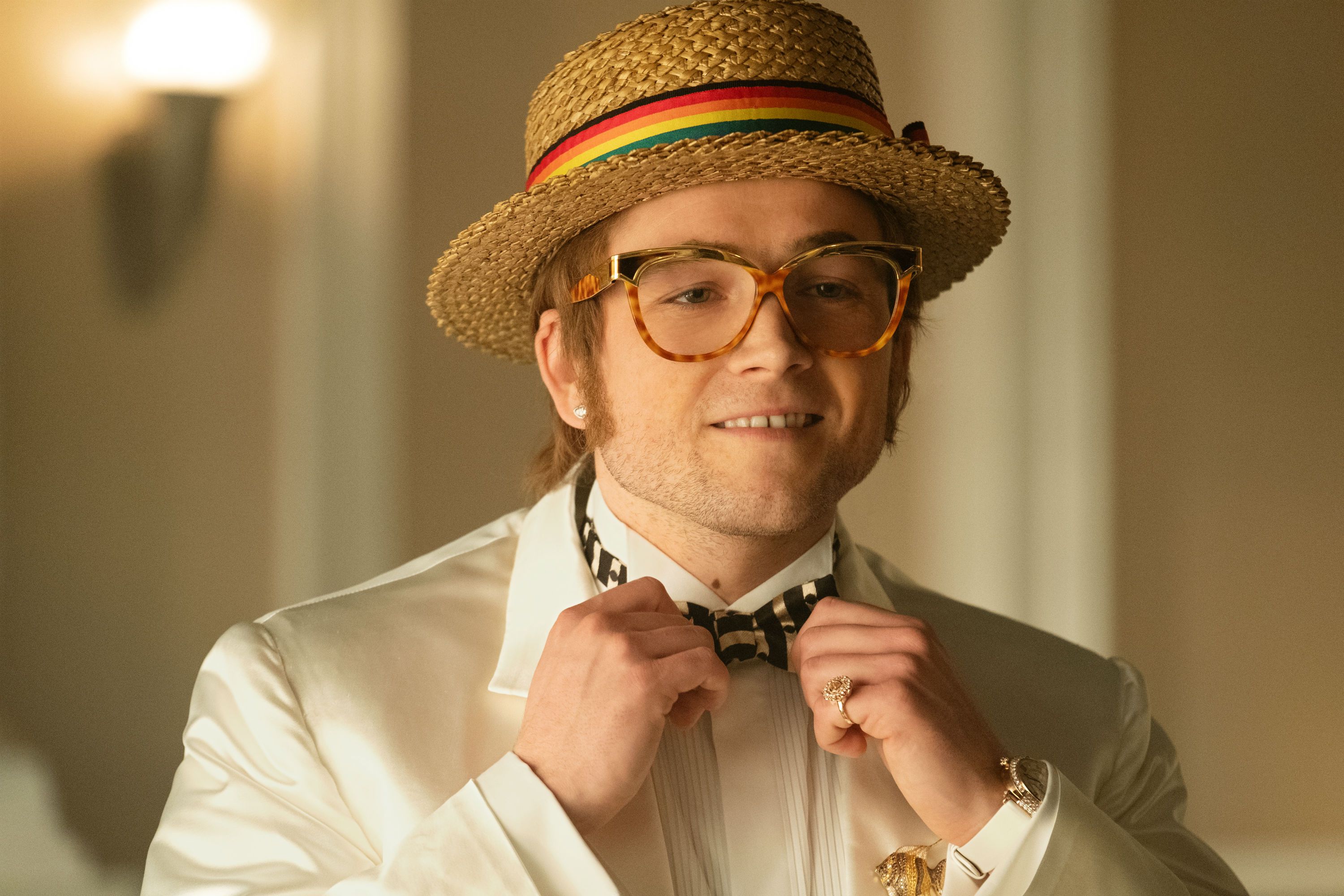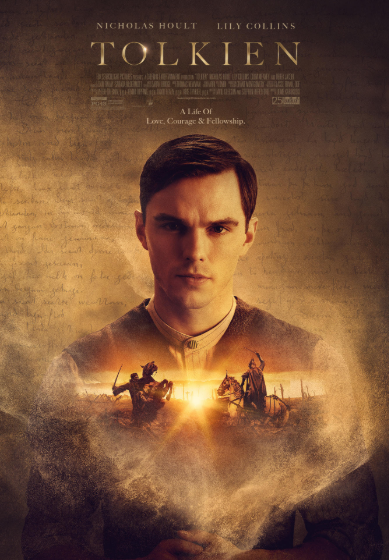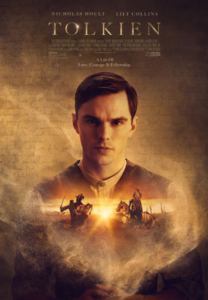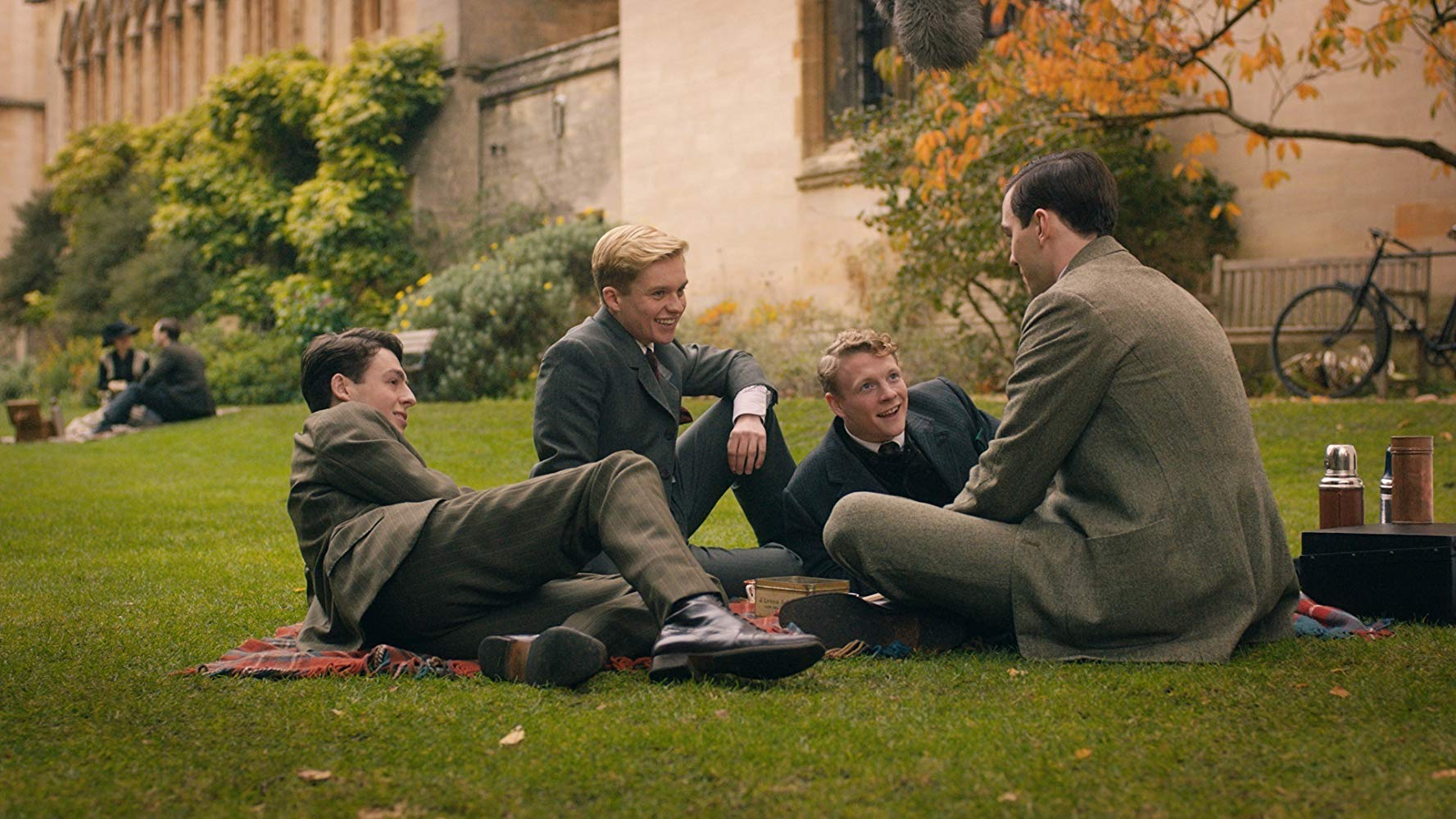Radioactive
Posted on July 23, 2020 at 5:58 pm
B| Lowest Recommended Age: | Middle School |
| MPAA Rating: | Rated PG-13 for thematic elements, disturbing images, brief nudity and a scene of sensuality |
| Profanity: | Mild language and sexual references |
| Alcohol/ Drugs: | Social drinking |
| Violence/ Scariness: | WWI battle scenes, |
| Date Released to Theaters: | July 24, 2020 |
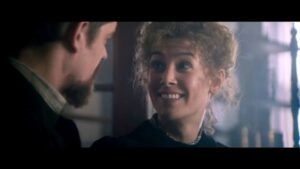
Biopics, even the most sincere, even about the most fascinating real-life characters, even made by directors who are willing to break with the traditional structure, still two things are true. First, the only thing that really matters is the lead performance. Second, there is really no way to get around the basic structure that all lives follow and all biopics follow except those like “Jobs” that focus one or just a few incidents. We see crucial early experiences that either reveal the subject’s special talent or some life-forming experience or both. We see struggle. We see people who foolishly do not believe our subject can succeed. We see our subject succeed.There’s usually a setback or special mid-point challenge. And then we see how it ends.
Marie Curie certainly had a fascinating life and Rosamund Pike gives her considerable best. She is never less than mesmerizing. I particularly enjoyed watching her in the first half of the movie, as we see her struggling to be taken seriously as a scientist when she knows she is better than the men who look down at her because she is a woman, because she is Polish, and because she is not shy about letting them know she is better than they are. It’s almost a proto-“Big Bang Theory,” the way that the same determination, single-mindedness, unstoppable curiosity, and relentless quest for truth that makes her a scientist is what makes it difficult for her to get along with anyone well enough to get her the resources she needs to do her experiments.
And that is when she meets Pierre Curie. He tells her he has read her work and it is brilliant. She tells him she has read his and it is very good. He offers her a space in his lab. Her insight and his ideas about how to prove her theories like two covalent bonds or a double helix. A lot happens very fast as the brilliance of her discoveries is evident when she just 32 when her paper on radium was published. But the movie stops for a dinner party so that Marie can explain her research to a non-scientist friend, and to us.
It then hurtles along, trying to cram in every crisis faced by Marie, from continued gender discrimination to being accused of adultery after Pierre’s death, when her letters to her married lover were made public by his wife. Most interesting, and worth an entire movie of its own, is her service during WWI, when she developed portable X-ray machines that saved thousands of lives and prevented needless surgery. Like the man for whom the most important scientific award in the world is named, Alfred Nobel, Marie Curie’s great achievement was responsible for incalculable benefits (we see an early cancer patient treated with radiation) and unthinkable tragedy (we see a Hiroshima resident looking up to see the Enola Gay, and the ravages of Chernobyl. This makes things a bit muddled, but Pike’s stirring performance makes us believe we get a sense of Marie Curie’s fierce intelligence and even may make us wonder about what discoveries we can make.
Parents should know that this film includes WWI battle scenes and characters who have been wounded, characters who are ill and dying and references to deaths of family members, brief rear nudity, non-explicit sexual situation, and references to adultery.
Family discussion: What do we learn from Marie’s reaction to the death of her mother? Why does this film include glimpses of events long after Marie’s death? What can we do to make sure that what we learn about and invent is used to benefit humankind and not for wars and violence?
If you like this, try: the glow-in-the-dark graphic novel the film is based on and another film about scientists and inventors, The Current War.


